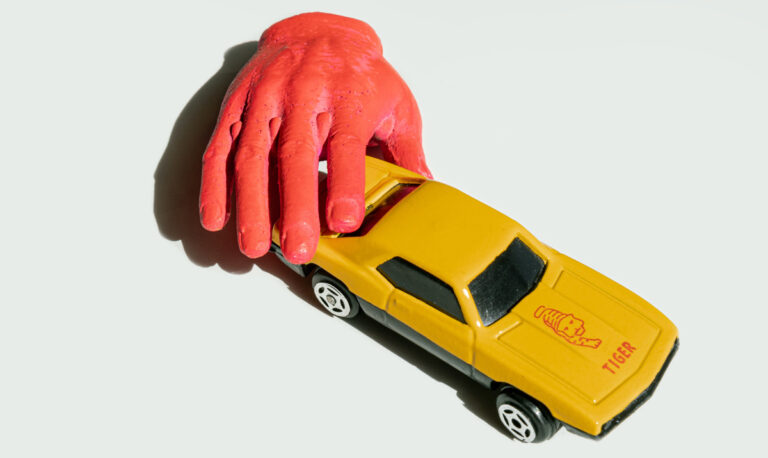Why nostalgia is the megatrend of the 2020s
We’ve all struggled to create new memories in the last year or so. Infrequent opportunities to meet up with friends and family, holidays being cancelled, and gigs being rescheduled again and again have all meant we’ve spent a fair amount of time at home. But while lockdown was certainly the theme of 2020 and some of 2021, the trend was to seek comfort in the past.
The fact that nostalgia has become a major trend should come as no surprise. It’s cropping up everywhere to soothe us, whether that be in the form of TV, music, or fashion. But does it have the staying power to define the 2020s as a whole?
The draw of nostalgia
Why is it that we look back with such fondness on media and fashion of the past? In simple terms, in order to make the present struggle bearable, we’re going back to better and happier times.
The science is there to back it up too. According to psychological research, positive memories activate the reward pathway in the brain, which is essentially a release of chemicals that make us feel good. This makes us want to carry the act out again that made us feel good—in this case, remembering happy memories. In a nutshell, that is what nostalgia is and why fond experiences you’ve had make you feel good, especially in a disappointing period like today’s pandemic. There’s no better way to escape boring times than to indulge in escapism and nostalgia. Research by GlobalWebIndex found feelings of nostalgia aren’t restricted to a certain age group but are a common feeling for everyone.
Nowadays, we have faster and simpler access to all sorts of nostalgic trips, from music and films to books and articles. It’s easy to understand why nostalgia is becoming a key trend in today’s world. So much so that we’re expecting to see this trend continue. Research has also suggested that nostalgia can contribute to psychological resilience and optimism, which are what we need to help us through the boredom of lockdown.
In with the old for Burger King
Even marketing has hopped on the nostalgia trend. Successful marketing is often about selling customers a feeling, and nostalgia is the ideal chance to do so. Brands rely on creating an emotional connection with customers, making them feel familiar and comfortable with it so they’re more likely to return. After all, retaining customers is incredibly important.
Companies have been embracing the familiar in order to beckon to their customers’ desire for nostalgia. They have been returning to their roots, offering a nostalgic experience by rebranding their logos and packaging similar to a familiar sight.
Fast-food chain Burger King rebranded for the first time in 20 years recently, bringing back its logo from the 1970s. The logo diverts away from ‘artificial’ and ‘synthetic’ and attempts to capitalise on better times. Speaking to Dezeen, designer Lisa Smith explained, “We explored a lot of different design territories, but kept coming back to the brand’s original iconic logo from 1969 and 1994 when Burger King looked at its best.”
“We were inspired by how it has grown to have such an iconic place in culture—from Back to the Future, Gremlins through to more recently Stranger Things and BK’s Warhol campaign.”
Fashionable pasts
Fashion has always been a cycle of past must-haves eventually returning as new trends. Admittedly, there are some fashion trends that have rightly remained in the past, while some become attractive again for the modern-day shopper.
Every year, the latest fashion takes a pinch of inspiration from what came before. However, certain notable items have a nostalgic edge to them. Smaller shaped shoes have been ditched for huge, clunky, Y2K-style trainers, with both high street stores and designer labels getting involved. Boot-cut jeans, bum bags, and three-quarter fleeces have all certainly become fashion statements of the 2020s as well as knee-high boots, which have existed in the fashion world since around the 1950s.
Fun and memorable decades are certainly in need right now, so it’s no surprise that we’ve been yearning for the bright and bold looks of the nineties and noughties.
Digital memories
From Facebook to Instagram, nostalgia is embedded in social media. All of these apps offer memories that show you what you posted or saved that day years back, allowing you to look through pictures, videos, and posts that you might’ve otherwise forgotten about.
Most recently, the trend of divulging our Spotify Wrapped videos has taken off, with people keen to show off their top 100 tracks, favourite genre, or eye-watering hours spent listening to tunes. Music can be effective in transporting us right back to a powerful memory, which might explain why you’ve been listening to a lot of songs you used to love. In fact, research has shown that music makes us feel incredibly nostalgic by associating it with certain experiences.
It’s not just digital music either. Cassette sales increased two-fold in the first half of 2020, reaching a record high in 15 years. However, it is a young audience driving these sales, with pop acts like Lady Gaga being the most popular. The same can be seen for vinyl, almost reaching a 30-year high, being their highest point since the Britpop boom. It is predicted that nostalgia is driving this trend as streaming services like Spotify provide unlimited access to music of all kinds.
This yearning for the past is overlapping into new streaming platforms, however. Almost four in ten said they were prepared to pay more for a content streaming service that provided access to older content that was unavailable elsewhere.
During times of struggle, nostalgia proves a comfort blanket of familiarity and security. While we’re escaping to the past, we can’t help but wonder, what will the next big trend be? Something old or something new?





